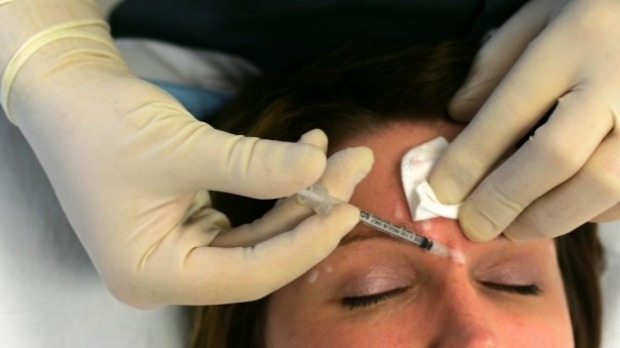
Doctors have warned it’s not worth risking your appearance for cheaper cosmetic surgery. Photo: Kitty Hill
The nation’s plastic surgeons are calling for a mandatory two-week cooling-off period before a person can get cosmetic surgery, and have warned people they risk disastrous outcomes and even death if they don’t ensure their doctor is qualified to treat them.
The Australian Society of Plastic Surgeons will on Thursday launch a new campaign calling for people to “think it over” when they plan cosmetic procedures, and call for tougher regulation of the industry to ensure people are protected.
The Medical Board of Australia is currently consulting on a proposal to improve the regulation of cosmetic medicine in Australia, with little currently known about the number and type of procedures performed by a huge range of clinicians amid a booming market.
It says cosmetic surgery is unusual medical practice because unlike other areas the patient and doctor have a relationship that is much more commercial and is often driven by non-medical needs, and it attracts a disproportionate number of medical complaints.
The president of the Australian Society of Plastic Surgeons, Tony Kane, said the society was currently preparing a response to the Medical Board’s proposal, and would be calling for a mandatory two-week cooling off period for anyone getting surgery.
The board is considering implementing a one-week cooling off period, but Dr Kane said that was not enough.
“All surgery carries risks, including cosmetic surgery, and people need adequate time to carefully consider their decision, and who is doing the surgery, and whether it is an accredited facility… as well as what protections they have in place if something goes wrong,” he said. “Internationally in Britain they have already instituted a 14-day period, and I think we should be consistent internationally”.
He said patients as well as doctors needed to take responsibility for the seriousness of the procedures they were undertaking.
“We have seen increasing complications from people having surgery done overseas or in less desirable facilities, and we are concerned that people are doing themselves harm,” he said.
However, he acknowledged it would be “unreasonable to expect an ordinary Australian to understand” the many different levels of training and accreditation needed for different procedures.
Plastic surgeons had ten years of specialist training, and people who were qualified this way were listed on the Society’s website, and he said people should only choose practitioners who were equipped to deal with procedures done under general anaesthetic, rather than local.
“If a facility is not able to perform general anaesthetic, I would be questioning why that facility is doing that procedure,” he said.
Cosmetic surgery is a fast-growing area and can involve anything from minor to serious procedures, which makes it difficult to regulate, according to the Medical Board of Australia consultation paper, which is open for submissions until the end of May.
Clinicians who perform cosmetic procedures are members of four different professional bodies, of which the Australian Society of Plastic Surgeons has the most members, and range from fully qualified surgeons to beauticians.
The chairwoman of the medical board, Joanna Flynn, said there had been long-term concerns about cosmetic medicine, but increasing rather than decreasing regulation was difficult.
She said the board was most concerned about vulnerable people undergoing cosmetic procedures with unrealistic expectations, or without completely understanding what they were going into.
“Normally for most surgical procedures the patients go through a GP and they have a discussion with the GP first about what the procedure is and what the likely risks and benefits will be,” she said.
But with cosmetic surgery patient initiate the consultation directly with a provider, who also has a financial incentive to encourage them to go ahead.
It is not known exactly how many doctors and nurses perform cosmetic procedures, but the board’s consultation paper says the industry attracts “a proportionally higher number of patient complaints than providers of other medical procedures”.
She said she welcomed all submissions, including those from the society of plastic surgeons, as the board wanted to know it was on the right track with its proposals, which include whether or not it should release detailed guidelines aimed at cosmetic doctors rather than the generic guidelines they currently fall under.
